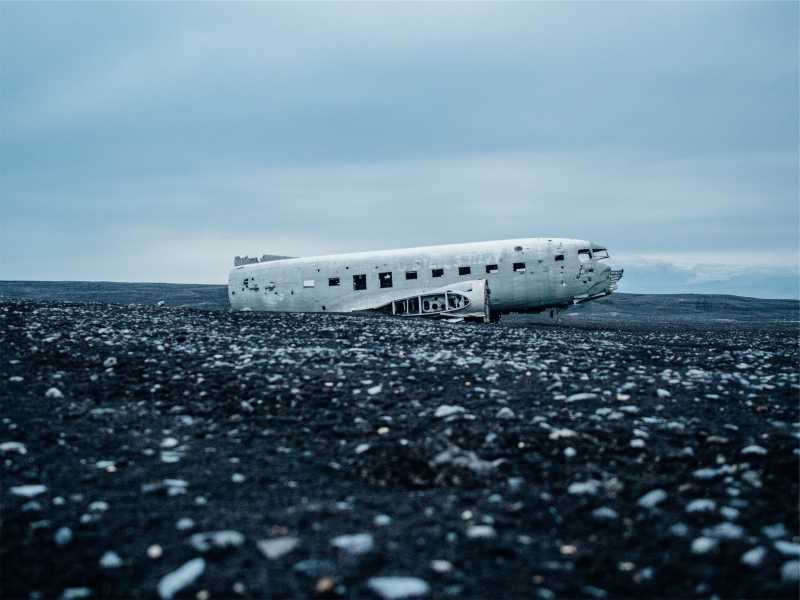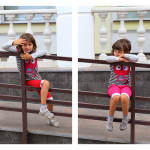We run our website the way we wished the whole internet worked: we provide high quality original content with no ads. We are funded solely by your direct support. Please consider supporting this project.

Isn’t the World Unsafe If God Doesn’t Control Everything?
If God isn’t in control of everything, the world feels unsafe. If the future is open and if things can happen outside of God’s will, what guarantee is there that there is a point to a person’s suffering? Maybe it’s all just bad luck.
My experience has been that many of those who honestly examine the evidence for the open view and choose to reject it do so not because the evidence is weak but because they fear its implications. It is true that according to the open view things can happen in our lives that God didn’t plan or even foreknow with certainty (though he always foreknew they were possible). This means that in the open view things can happen to us that have no overarching divine purpose. In this view, “trusting in God” provides no assurance that everything that happens to us will reflect his divine purposes, for there are other agents who also have power to affect us, just as we have power to affect others. This, it must be admitted, can for some be a scary thought. I am sympathetic to the reaction, but I also believe there are several considerations that can effectively address it from an open perspective.
Fear and Truth
First, how is the scariness of a view relevant to the question of whether or not the view is true? There is no reason to conclude that something is true to the extent that it conforms to our wishes. Indeed, the fact that the open view doesn’t conform to what we might wish were true actually provides one more reason for thinking that it is true, for reality rarely conforms to our wishes. If we are honest, our core belief in the world—manifested not by what we say but by what we do—is that it is sometimes a scary place.
Divine Control and Comfort
Second, I do not see how affirming an all-controlling God provides any real comfort in the face of the scary aspects of the world.
I would submit that your belief actually makes the world a scarier place. For one thing, if God controls robbers, for instance, and these robbers victimize godly and ungodly people alike (which no one can deny), then it might be that God has decided to have one of these robbers victimize your family. If God has decided this, there is nothing you can do about it. If God is the sort of God who is capable of ordaining such evils, then you can’t trust God’s character. If God controls all things, there’s nothing you can do about it if he has, in fact, decided this.
If God chooses not to control all things, however, then there is something you can do about it. As a morally responsible free person, you can make choices that maximize your safety and minimize your vulnerability against other free people who have chosen evil. The world is perhaps still scary, but less so than if the Creator himself had the kind of character that made him willing to ordain the robbery of your house.
Find Comfort in the Trials
Finally, and most importantly, in the face of a scary world, the open view offers the same comfort that the NT offers. With Scripture, the open view affirms that God’s character is unambiguously loving and thus he is on your side. He doesn’t ordain evil. This view affirms that, regardless of what happens to you, your eternal relationship with the Lord is secure (Rom 8: 31-39).
Furthermore, the open view affirms that Christ will be with us to provide a peace that “surpasses all understanding” whatever may come our way (Phil 4:7). It affirms that whatever happens, God will work with us to bring a redemptive purpose out of the event (Rom 8:28). The open view also affirms that God can alter your destiny, precisely because the open view holds that the future is in part not settled. Finally, the open view affirms with Scripture the central hope that when God’s kingdom is established, it will have been worth it.
The world is still scary. It is in a state of war, under siege by the enemy of our souls, and this is not a comforting thought (1 Jn 5:19). The open view grants this. Even God takes risks. But the world is less scary in this view than if we try to find consolation in the belief that everything that occurs is controlled by God and thus reflects his dubious character.
—Adapted from God of the Possible, pages 153-156
Image by Jeff Sheldon
Category: Q&A
Tags: Determinism, Fear, Free Will, freedom, God of the Possible, God's Character, Open Theism, safety
Topics: Providence, Predestination and Free Will, Responding to Objections
Related Reading

Podcast: If Our Names Have Been in the Book of Life Since Before Creation, Are We Still Free?
Greg considers the documentation habits of the Lord. http://traffic.libsyn.com/askgregboyd/Episode_0382.mp3

What is the significance of Jeremiah 3:19–20?
“I thought how I would set you among my children…And I thought you would call me, My Father, and would not turn from following me. Instead, as a faithless wife…you have been faithless to me…” If the future is eternally and exhaustively settled, and if God therefore knows it as such, he could not have…

What is the significance of Exodus 33:1–3, 14?
“The Lord said to Moses, ‘Go, leave this place, you and the people whom you have brought up out of the land of Egypt, and go to the land of which I swore to Abraham, Isaac, and Jacob…I will send an angel before you, and I will drive out the Canaanites…Go up to the land…

Rethinking Election: Romans 9, Part 1
Many people believe that Romans 9 demonstrates that God has the right and power to save whichever individuals he wants to save and damn whichever individuals he wants to damn. I’ll call this the “deterministic” reading of Romans 9, for it holds that God determines who will be saved and who will be lost. On…

What is omni-resourcefulness?
Question: What do you mean when you refer to God’s omni-resourcefulness? Can you support this with Scripture? Answer: I and others use the term omni-resourcefulness to highlight a feature of God in Scripture that the classical theological tradition consistently overlooks. Part of the greatness of the God of the Bible, we argue, is that he…

When God is Revealed
Whether we’re talking about our relationship with God or with other people, the quality of our relationships can never go beyond the level of trust the relating parties have in each other’s character. We cannot be rightly related to God, therefore, except insofar as we embrace a trustworthy picture of him. To the extent that…
